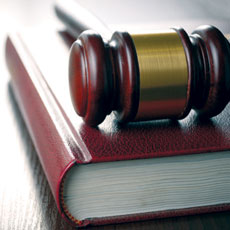

Despite passage of laws meant to protect businesses from COVID-19 related lawsuits in 30 states, few legal challenges have materialized yet, according to a new analysis. But that could still change.
Some business advocates argue that such liability shields convinced would-be plaintiffs and members of the bar that the cost of pursuing complaints would be too steep.
Others, however, are taking a wait-and-see approach, expecting to see more courtroom challenges as time passes or regulatory objections raised through employee-protection agencies.
National law firm Hunton Andrews Kurth has tracked about 200 COVID-19 civil suits filed nationwide by workers this year, as reported Thursday by Pew Charitable Trust’s Stateline.
“The liability shield laws themselves have discouraged plaintiffs’ lawyers from trying to bring suits,” said Torsten Kracht, an attorney withHunton Andrews Kurth. “In cases where you have employees who got sick on the job, their recourse is really through workers’ comp claims. I think that may be another reason.”
Liability protection laws continued to be passed through mid-2021 to protect certain business classes, often including healthcare providers, from lawsuits. Despite exceptions made for negligence or willful misconduct, some states have now started to repeal such protections.
Many nursing home providers have been depending on the protections afforded by the federal Public Readiness and Emergency Preparedness, or PREP, Act. Many state challenges have been rejected or are now on appeal in federal courts, where judges will ultimately decide which measures apply and where.
But business owners shouldn’t be lulled into complacency amid the relatively tame courtroom drama, experts warned.
Ashley Cuttino, a labor and employment lawyer at Ogletree Deakins in South Carolina, said there had been no big wins by plaintiffs so far. But she said plaintiffs were “just hitting their stride in litigation right now. It’s early.”
In healthcare, attorneys have previously told McKnight’s that complaints about perceived workplace hazards could also come through avenues such as labor boards, the Occupational Safety and Health Administration or the Equal Employment Opportunity Commission, which would weigh in on mask-wearing and vaccine rules.
And as deadlines for filing approach, the pace of all kinds of legal challenges could pick up.
“If I were a betting man, I’d say it’s only a matter of time,” Pete Reilly, North American healthcare practice leader for HUB International, warned in March. “The plaintiffs’ bar has too much incentive otherwise.”




